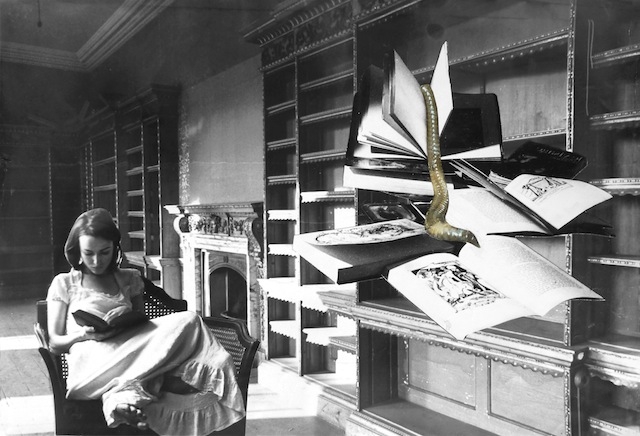Bouchra Khalili, Lisson Gallery, through 18 March
Marseilles, Ramallah, Bari, Barcelona, Istanbul… some of the cities where Bouchra Khalili met the subjects for The Mapping Journey Project (2008–11), all migrants forced to flee their countries. Khalili offered them a marker and a map, asking them to recount their stories while mapping their clandestine travels. The absence of camera filter and script eludes the pathos one might expect – instead, these escapes become acts of resistance and their mapping, celestial cnstellations.

Bouchra Khalili, The Mapping Journey Project, 2008–11 (installation view, New Museum, New York, 2014). Photo: Benoit Pailley. Courtesy New Museum, New York
Abbas Akhavan: variations on a garden, DRAF Studio, through 18 March
The Toronto-based, Teheran-born artist is fascinated with the garden, not only as a metaphor for the subjugation of nature by humanity, but also as a reflection of the borders and political constructs that make up human societies. For this sculptural installation in DRAF’s Studio space, Akhavan takes us back to the cradle of civilisation on the banks of the Tigris and Euphrates rivers, supposed site of Babylon’s Hanging Gardens, via enlarged casts of plants native from the region (but cast from specimens sourced from various botanical gardens in the UK). Laid bare on white cotton sheets, these specimens seem frozen in time, waiting either to be examined or mourned.

Anna Zacharoff & Natalia Goncharova: so far so food, Vilma Gold, through 11 February
In her second solo show at Vilma Gold, Anna Zacharoff’s paintings of underwater creatures and totemic clay pot sculptures are shown alongside four works by Russian avant-garde artist Natalia Goncharova (1881–1962). Goncharova’s work, which spanned painting, performance, costume and design, incorporates dynamic rays of contrasting colours, Russian folk art and mythology. This, together with Zacharoff’s abstracted fish and Hokusai-inspired paintings, and the sometimes phallic, sometimes fishlike columns, makes for a cryptic and evocative play of female eroticism across a century.

Room, Sadie Coles HQ, through 18 February
Are all-women shows gestures of solidarity and acts of political self-help, or isolating acts of withdrawal and separatism? However you shake that argument out, group show Room focusses on that perennial issue for feminist discourse, domestic space, once a woman’s the ‘proper’ place. Nothing very proper about the artists gathered here, from Sarah Lucas and Louise Bourgeois to Marvin Gaye Chetwynd and Rachel Feinstein, Room rips and tears at the meaning of inside and outside, public face and private desire.

Charles Avery: The People and Things Of Onomatopoeia: Part 2, Pilar Corrias, through 17 February
The indescribably mysterious fictive world of Charles Avery surfaces again at Pilar Corrias. Avery’s life-time (so he says) project to document the imaginary world of ‘The Island’, its inhabitants and its capital city Onomatopoeia, turns up as strangely evocative scenes of a world somewhen in the twentieth century, alongside arcane sculptures and objects, where reality and metaphysical philosophy seems to coexist. There might be a hint of satirical subtext to The People and Things Of Onomatopoeia, too – the citizens are described as a ‘cosmopolitan bunch with widely ranging views’, but who would rather argue in philosophical salons than venture out into the wilderness ‘beyond the city walls’.

Charles Avery, The People and Things of Onomatopoeia: Part 2, 2017 (installation view). Courtesy the artist and Pilar Corrias, London
Peter Liversidge, Kate Macgarry, through 18 February
‘Pareidolia’ is the term for the psychological condition in which the sufferer tries to make sense of the world around them by looking for a pattern, visual structure or, more commonly, a face, in what they see. Liversidge lays it on with a comic trowel, putting two eyes and a mouth onto all kinds of objects – bits of cardboard, neon, rugs and tourist posters. Silly and profound in equal measure.

Tomoaki Suzuki, Corvi-Mora, through 4 March
In a secluded corner of South London nestles Corvi-Mora gallery (alongside the equally interesting Greengrassi gallery). It’s a set of lofty spaces, perhaps appropriate for Japanese artist Tomoaki Suzuki’s diminutive wood-carved and hand-painted figurines, of the people the artists finds in his London neighbourhood. Hipsters and homies, they’re often no more than 50cm tall, but somehow larger than life.

Tim Noble and Sue Webster: Sticks with Dicks and Slits, Blain/Southern, through 25 March
90s enfant terribles Noble and Webster continue their love affair with shameless vulgarity and wild egocentricity in these giant ‘self-portrait’ sculptures, scaled-up from maquettes made from twisted metal wire. Bodily functions feature heavily in the duo’s self-representations – pop, populist and uncouth in a too-polite age.

Fernanda Gomes, Alison Jacques, through 1 March
For serious meditations on colour look in on Brazilian artist Fernanda Gomes’s solo exhibition of paintings – just don’t expect to see actual colours. This might be to do with Gomes having spent the past 30 years researching the light spectrum, and while white light refracts into different hues, it’s the sum of all colours that is used exclusively in Gomes’s work. Add to this the question of what defines a painting (Gomes creates dialogues between ‘autonomous pieces, made of canvas, wood and paint’) or how paintings are experienced and you might find yourself reevaluating your perceptions of colour and form in the everyday.

Anya Gallaccio: Beautiful Minds, Thomas Dane Gallery, through 25 March
Another artist who made her debut in the 90s, Gallaccio was a pioneering presence in British sculpture with works that celebrated organic materials and exploited their ephemeral processes of change and decay. Here, duration becomes technological, as a clay-producing 3D printer is programmed to output a scaled-down version of Devil’s Tower, the famous ‘tabled-topped’ mountain in Wyoming, USA. Ephemeral and geological time clash; but what will it look like?

27 January 2017
